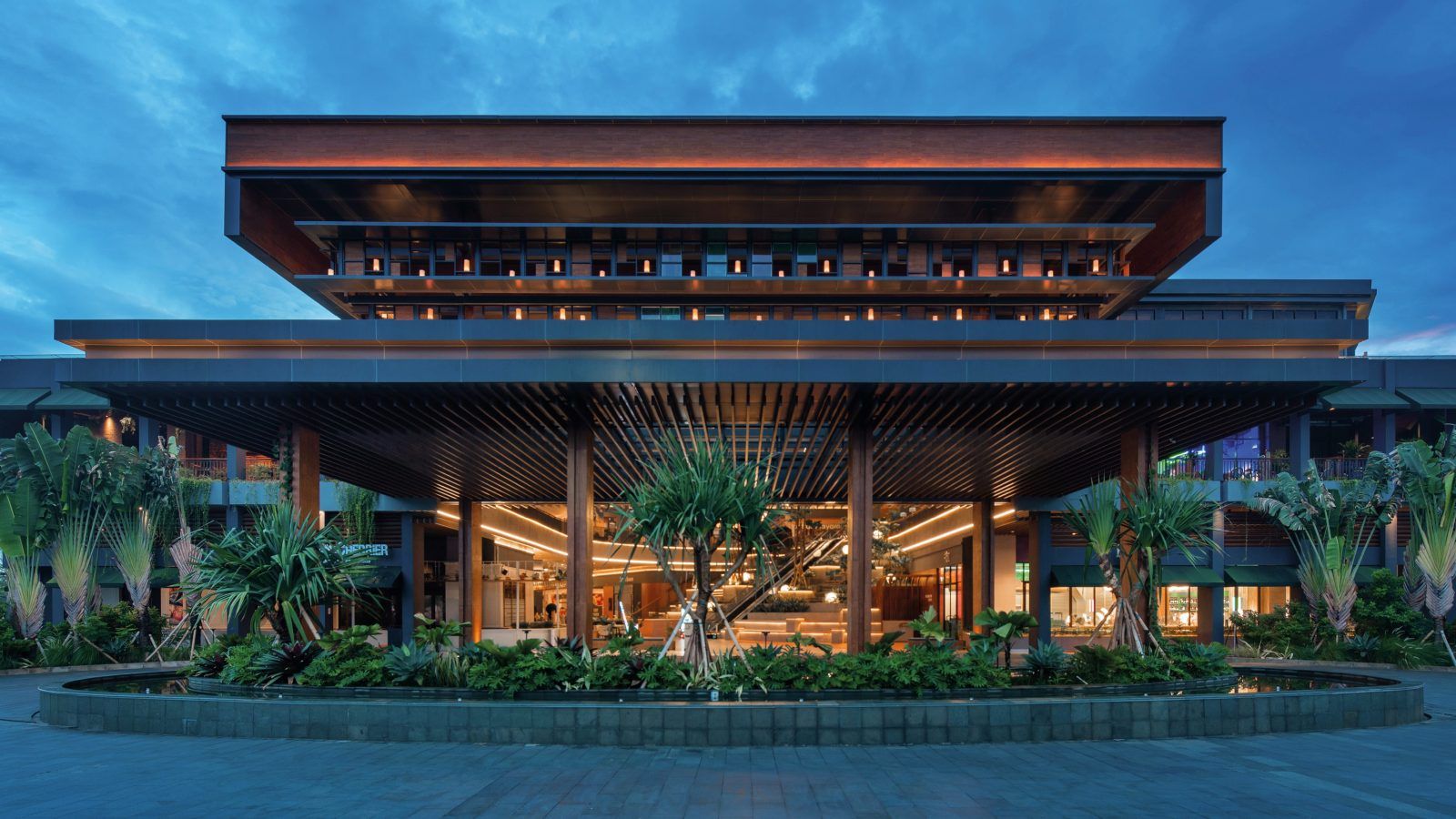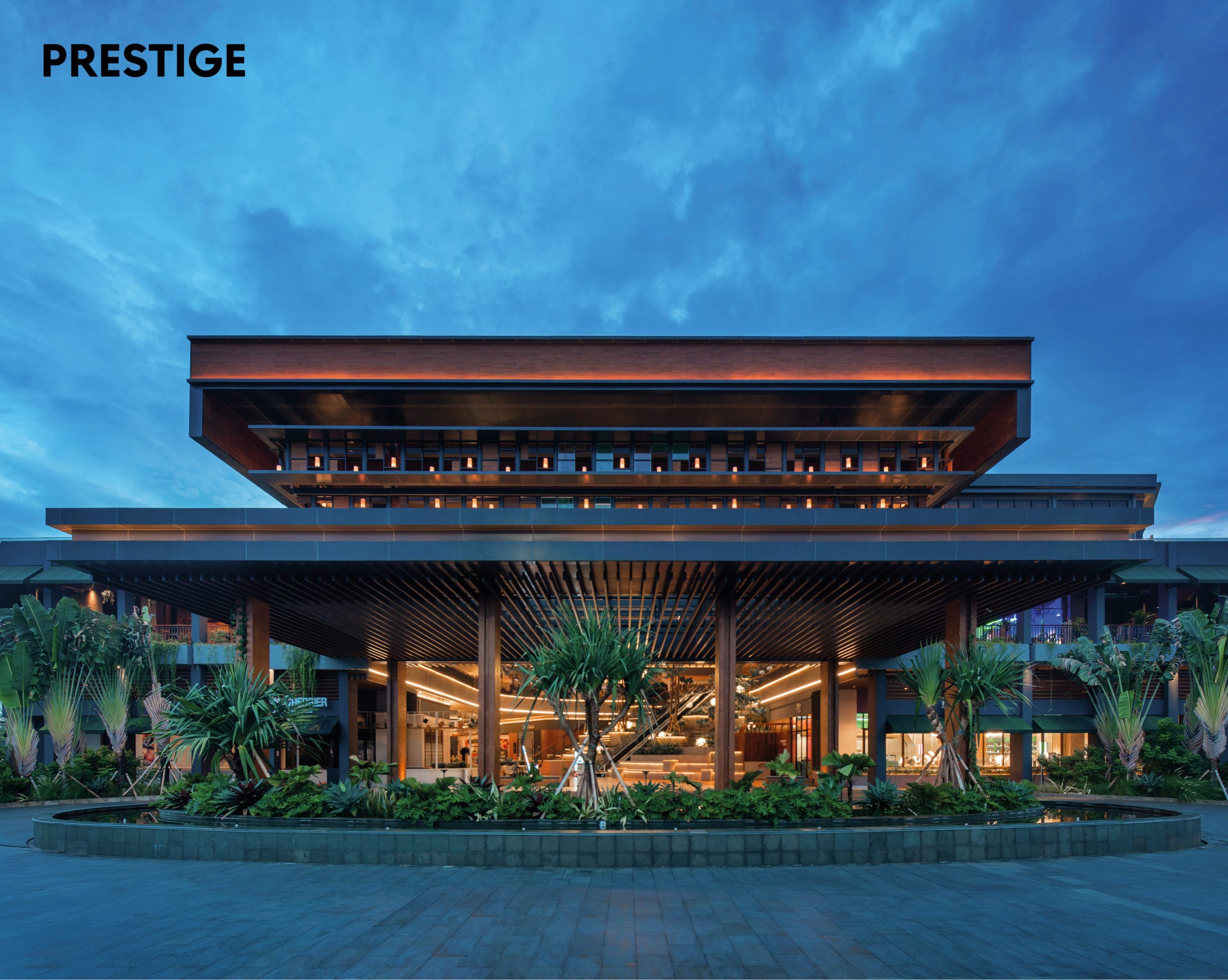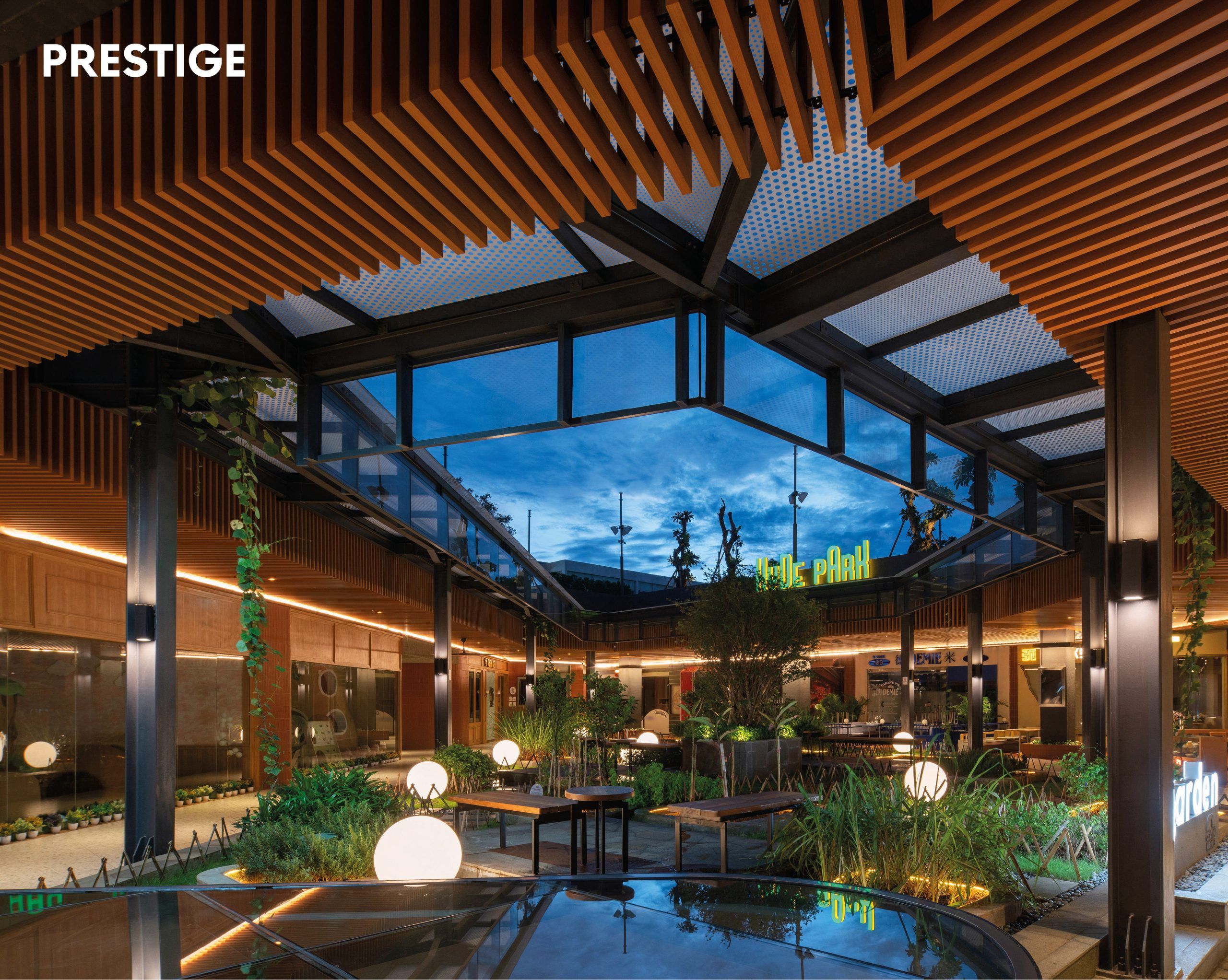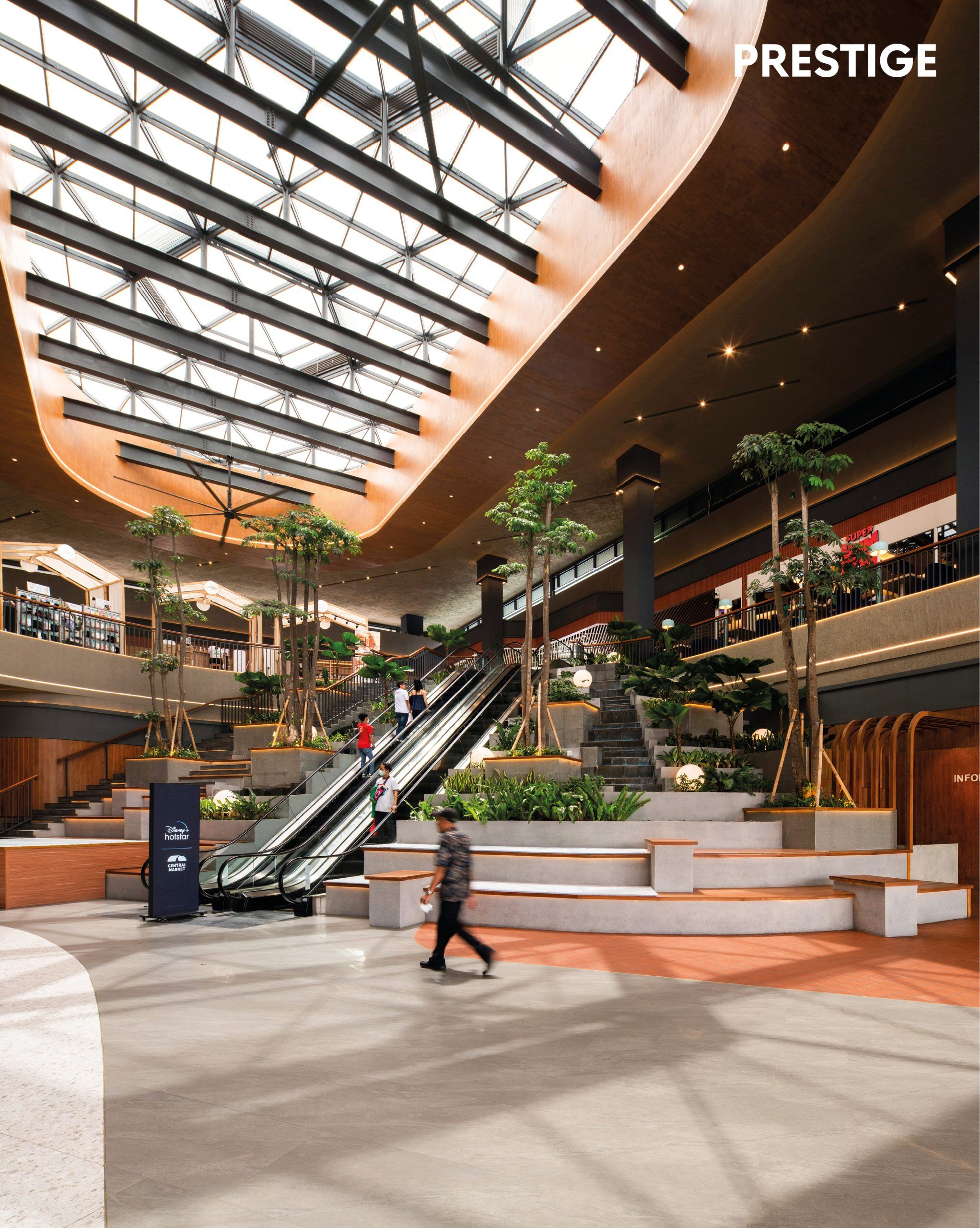Central Market PIK stands as the first certified green building in Indonesia


Within a little more than a year following its grand opening, Central Market PIK appropriated a major milestone by becoming Indonesia’s first retail building to receive the prestigious EDGE Advanced Certificate from the International Finance Corporation – World Bank Group and Green Building Council Indonesia (GBCI).
Largely evaluated based on eco-friendly values, this achievement Largely evaluated based on eco-friendly values, this achievement underlines Agung Sedayu Group’s commitment to sustainable retail underlines Agung Sedayu Group’s commitment to sustainable retail development. Located at the heart of Golf Island PIK, all of the development. Located at the heart of Golf Island PIK, all of the space’s all-encompassing facilities, from a supermarket, an edible garden, multiple F&B outlets, retail stores, a bookstore, a kids’ playground, and a rooftop pet playground, integrates the latest advancement in green technology to support the sustainable vision that is Central Market PIK.
CEO Commercial & Hotels Agung Sedayu Group, Natalia Kusumo, reflected on this achievement as part of Amantara’s environmental and sustainability initiative and their dedication to upgrade the standards of living for all. “Visitors and residents can fulfil their daily needs and partake in their hobbies at Central Market PIK with peace of mind knowing that they are inhabiting a non-intrusive space with minimal negative impact to the environment.”

Agung Sedayu Group continues to serve as the driving force behind leading destinations within PIK, including the Central Market, led by Amantara, a subsidiary of ASG, with a focus on sustainability and creating a continuous positive impact on the environment. The eco-lifestyle hub implements sustainable living concepts through the use of solar panels and natural cross-ventilation methods. Its biophilic design fosters a harmonious relationship between architecture and the environment, utilising natural lighting, good circulation, and visitor comfort. The open-air elements, vertical gardens, and green canopies create a cooling atmosphere. PTI Architects, the lead architectural team working with Bitte Design Studio for the building’s interior, used sustainable materials like natural stones, reclaimed wood, terrazzo, and plastic-wood composite to craft a warm and inviting ambiance. Additionally, the market features a recycling system, a rainwater harvesting scheme, and energy-saving measures.
Led by Managing Director Doddy Agustiawan Tjahjadi, PTI Architects spearheaded the architectural design of the Central Market PIK project. This venture showcases their commitment to integrating sustainable principles into architectural design, marking another milestone in their portfolio of green architecture projects. Since its opening last year, Central Market PIK has become one of the most exciting projects with open-air and natural ventilation design for a retail area, considered among the first of its kind in Indonesia.
Further assisting Amantara’s sustainability vision is Eco-Mantra, an environmental engineering consultancy which has played a pivotal role in reducing the environmental impact of Central Market PIK. “Our role involves understanding the environment while reducing environmental impacts related to energy, water, and materials,” Mendi Siahandan, Head of Operations and Green Building Expert at Eco-Mantra elaborated. This comprehensive approach has helped Central Market PIK achieve notable sustainability milestones.

Working side by side following the directions of Amantara, PTI Architects and Eco-Mantra implemented sustainable principles to address energy, water, and material efficiency.
Central Market PIK’s design approach is unique due to its location near the sea, where the afternoon heat is particularly intense. To combat this, PTI Architects oriented the building westward and utilised a secondary skin to minimise direct sunlight exposure. The architecture blends a traditional mall with open-air elements, strategically using openings to allow coastal western winds to flow through, thus maintaining a cool temperature inside. This design not only keeps the environment comfortable but also allows visitors to enjoy nature while remaining indoors.
The Environmental Sustainable Design (ESD) process spearheaded by Eco-Mantra at Central Market PIK has led to significant resource savings. The market is set to be 42% more energy-efficient, 28% more water-efficient, and use 54% less embodied carbon in construction materials compared to typical retail buildings. Central construction materials compared to typical retail buildings. Central Market PIK boasts one of the largest solar panel installations for retail buildings in Indonesia, with 855 panels generating 465 kWp. “Central Market is officially the first retail building and one of the biggest buildings in Indonesia that achieved the highest level in EDGE certification, EDGE Advanced,” Siahandan highlighted.
Incorporating sustainability into Central Market PIK, PTI Architects implemented several innovative solutions. One significant aspect is the reduction in electricity consumption, thanks to the natural ventilation in the main public spaces. Additionally, rainwater harvesting and solar panels contribute to the overall green system. The inclusion of green areas, particularly in the west-facing section, along with water features in the atrium and upper level, helps to cool the space further. These features collectively enhance the building’s sustainability, making it a model for future developments.
Achieving green building certification standards posed challenges, particularly with the façade’s detailing. However, PTI Architects succeeded in creating a landmark in Golf Island PIK. The importance of green buildings has grown, as global awareness of environmental issues increases. For visitors, a well-designed green building offers a comfortable environment without the need for extensive air conditioning, thanks to effective airflow management.
Buildings are responsible for nearly 38% of annual global greenhouse gas emissions, with the production and use of materials like cement, steel, and aluminium contributing significantly to the carbon footprint. Energy consumption of these buildings also undoubtedly contribute to the decline of natural resources. Couple this further with the rapid growth of urban population centres around the world, a valid concern is raised on the consumption of energy and water in the near future.

By attaining the EDGE Advanced certification award, Central Market PIK demonstrate unmatched efficiency in three key components of energy, water, and the embodied carbon of materials. This indicates that the development is reducing its impact on the planet by not only using less energy and water but also constructed with materials that have a minimal impact on global warming.
The benefits of aligning with such high standards influence everyone with direct and indirect associations, including asset owners, stakeholders, and visitors alike. Reduced energy and water requirements mean lower expenses for those who build these structures, which also increases the buildings’ value. People who visit or live in these buildings contribute to environmental preservation while enjoying a healthier living environment. Tenants of sustainable buildings also report significant savings on their utility bills. These structures emit fewer greenhouse gases, use energy and water more wisely, and help keep our planet green and healthy.
By certifying buildings with standards like EDGE, stakeholders ensure that their projects are not only economically beneficial but also environmentally responsible, playing a crucial role in global efforts to address climate change.
The EDGE Advanced Certificate highlights its commitment to sustainable development. This certification, awarded by the International Finance Corporation (IFC) and the Green Building Council Indonesia (GBCI), recognises the Central Market PIK’s recent achievement of the EDGE Advanced Certificate highlights its commitment to sustainable development. This certification, awarded by the International Finance Corporation (IFC) and the Green Building Council Indonesia (GBCI), recognises the market’s efforts in implementing advanced green technologies. Central Market PIK uses solar panels, natural cross-ventilation, and biophilic design to reduce energy and water usage. These sustainable practices create a harmonious environment, enhancing both the building’s efficiency and visitor comfort.
Farida Lasida Adji, East Asia Regional Lead of IFC’s Green Buildings and Green Cities Program, emphasised the significance of this certification. “By achieving the EDGE Advanced level, Central Market PIK sets a benchmark for resource-efficient buildings in Indonesia,” she said. This milestone not only demonstrates the market’s dedication to reducing its environmental footprint but also serves as a model for other developments in the region. The integration of sustainable materials and energy-saving measures reflects a comprehensive approach to eco-friendly construction.
There are three levels of EDGE certification: EDGE Certified, which signifies a 20 percent reduction in energy consumption, water consumption, and energy embodied in materials; EDGE Advanced, with at least 40 percent reduction in energy consumption, and Zero Carbon, with the building becoming carbon-neutral by using 100 percent renewable energy and carbon offsets. Not complacent with its current EDGE Advanced Certificate achievement, Central Market PIK continues to apply rigorous standards in its role in promoting sustainable living in pursuit of reaching Zero Carbon certification level.